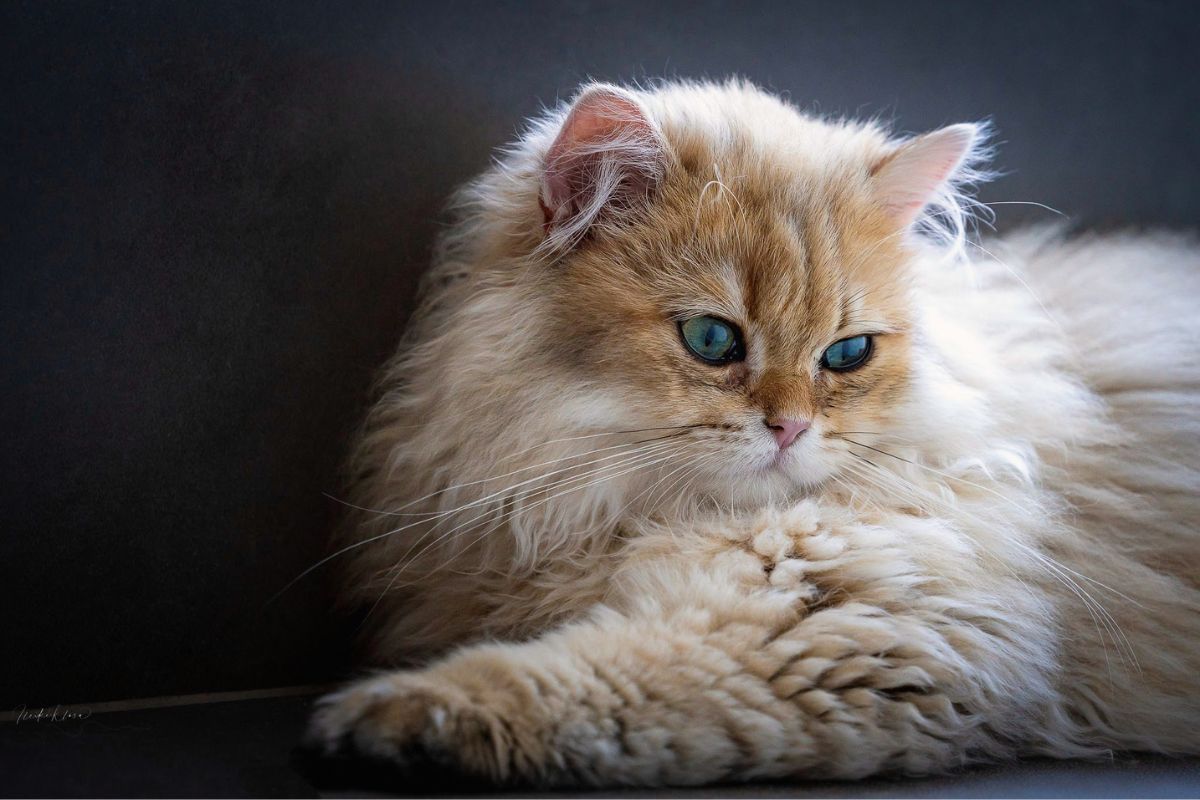The British Longhair, a variant of the well-known British Shorthair, offers an alluring blend of plush coat and endearing personality. This breed encapsulates elegance with its luxurious mane and amicable nature, making it a cherished companion in households around the globe.
Breed Overview
| Features | Details |
|---|---|
| Common Name | British Longhair |
| Scientific Name | Felis catus |
| Build | Muscular and robust |
| Life Span | 12-20 years |
| Average Weight | 4-8 kg (9-18 lbs) |
| Average Height | 12-14 inches |
| Coat Length | Long |
| Coat Colors | White, black, blue, cream, and more |
| Coat Pattern | Solid, tortoiseshell, bi-color, and more |
| Eye Colors | Green, blue, gold |
| Hypoallergenic | No |
| Country of Origin | United Kingdom |
Physical Description
The British Longhair is a study in plushness and strength. Standing on sturdy legs, this breed showcases a balance between athletic build and soft curves, weighing in between 4 to 8 kg with an average height of 12 to 14 inches. Females are generally smaller and less muscular than males, but both genders possess a majestic mane that craves admiration.
Their coat, a defining feature, varies widely in colors and patterns, including white, black, blue, and cream. The texture of their fur is dense and soft, draped elegantly over their body. From solid hues to complex tortoiseshell patterns, the British Longhair’s coat is a canvas of feline beauty.
Ears are medium-sized, fittingly proportionate to their round, fluffy face, while their large, vivid eyes can be green, blue, or gold, contributing to their striking appearance. The overall physical presence of the British Longhair exudes a regal aura, making them a captivating sight in any setting.
Behavior and Temperament
Characterized by a serene and affectionate demeanor, the British Longhair makes an outstanding family pet. They exhibit a fusion of playful energy and calm composure, fitting seamlessly into various household dynamics. Although they cherish quiet time, they also engage in playful activities with enthusiasm, displaying keen intelligence and curiosity.
Equipped with a harmonious temperament, they form strong bonds with their human companions, occasionally showcasing their autonomy. They communicate their needs and affections in a gentle manner, making them adaptable companions in both lively and serene environments.
History and Origin
Tracing back to the Roman invasion of Britain, the ancestors of the British Longhair cat were brought along to serve as pest controllers. Over centuries, these robust felines adapted to the harsh British climate, evolving into the resilient breed we know today.
The British Longhair’s lineage became distinct through selective breeding in the late 19th century, focusing on enhancing its plush coat and sturdy build. While it shares ancestry with the British Shorthair, distinct breeding programs have solidified its status as a separate breed, celebrated for its luxurious long fur and endearing personality.
British Longhair Cat Care
Caring for a British Longhair cat requires a dedicated grooming regimen to maintain its regal coat. Regular brushing minimizes the risk of matting and reduces shedding. An active lifestyle, enriched with various toys and climbing structures, nurtures their physical health and mental well-being. Though they adapt well to indoor living, access to safe outdoor spaces can enhance their quality of life.
Dietary management is crucial, with high-quality food tailored to their age, size, and energy level. Regular vet check-ups ensure ongoing health and vitality.
Common Health Problems
British Longhairs are generally healthy, but like all breeds, they can be predisposed to certain health issues:
- Hypertrophic Cardiomyopathy (HCM) – A common heart condition.
- Polycystic Kidney Disease (PKD) – Inherited kidney disease.
- Obesity – Due to their laid-back nature, proper diet and exercise are essential.
Where to Adopt or Buy British Longhair
British Longhair cats can be adopted from breed-specific rescues or purchased from reputable breeders. When opting for a breeder, ensure they are ethical and provide health clearances for the kittens. Adoption fees and purchase prices can range widely, often between $800 and $1500, depending on lineage and breeder reputation.
Diet and Nutrition
A balanced diet, rich in protein and low in carbs, suits the British Longhair best. Avoid fillers and opt for high-quality commercial foods or consult with a vet for a homemade diet plan. Occasional treats are fine, and fresh water should always be available. Supplements may be considered under veterinary guidance.
Comparable Breeds
If you find the Abyssinian intriguing, similar breeds worth exploring include:
- British Shorthair: Shares the robust build and calm demeanor of the British Longhair, but with a shorter coat.
- Ragdoll: Known for their gentle and laid-back nature, along with a penchant for going limp when picked up, much like the easygoing nature of the British Longhair.
- Maine Coon: Offers a glorious long coat and friendly temperament that parallels the sociable personality of the British Longhair.
- Persian: Exhibits a luxurious long coat and serene personality, mirroring the plush aesthetics and gentle nature of the British Longhair.
For more cat breed profiles, feel free to explore our extensive collection.
FAQ’s about British Longhair
Are British Longhair cats rare?
While not extremely rare, the British Longhair is less commonly found than its Shorthair cousin due to its specific breeding requirements.
Are British Longhair cats friendly?
Yes, they are known for their gentle and affable nature, making them excellent companions.
Are British Longhair cats lap cats?
Many British Longhairs enjoy cuddling and can be considered lap cats, though individual personalities vary.
Do British Longhair shed a lot?
Yes, due to their long coats, they tend to shed more than short-haired breeds, necessitating regular grooming.
Are British Longhair cats intelligent?
British Longhairs are recognized for their intelligence and can be trained to perform various tasks and tricks.
What is the temperament of a British Longhair cat?
They possess a balanced temperament, being both peaceful and playful, making them well-suited to families and singles alike.

